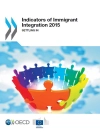This contributed volume focuses on diasporans, their characteristics, networks, resources and activities in relation to international business and entrepreneurship. It presents an overview of diaspora concepts from an economic perspective, and analyzes the global-economic and societal effects and mechanisms, revealing both positive and negative aspects of diaspora activities. Providing insights into the socio-cultural influences, it discusses diaspora entrepreneurship and international business, the respective organisational models, investments and business types. Lastly it offers an assessment of managing diaspora resources and policymaking.
This book was created by an interdisciplinary team of editors, co-authors and reviewers including historians, sociologists, psychologists, linguists and ethnologists, as well as experts in public policy, international business, marketing and entrepreneurship. This unique team (many of the authors are themselves diasporans with an extensive understanding of their topic) provides the first global academic platform on the subject, combining the latest empirical evidence from developing, emerging, transitional and developed countries with various combinations of diaspora flows that to date have received little attention.
Table des matières
Chapter 1: Introduction: The Concept of Diaspora from the Perspective of International Business and Economy.- PART 1: An Overview to Diaspora Networks in International Business.- Chapter 2: Diaspora and international business in the homeland: from impact of remittances to determinants of entrepreneurship and research agenda.- Chapter 3: Learning in various types of New Ventures – the role of “incoming” entrepreneurs.- Chapter 4: Leveraging the Caribbean Diaspora for Development: The role of network effects.- Chapter 5: A Taste of Home: The Nostalgia Trade and Migrant Economic Transnationalism.- PART 2: Positive and Negative Economic Activities in Diaspora Networks.- Chapter 6: Transnational investments of the Tunisian diaspora: Trajectories, skills accumulation and constraints.- Chapter 7: Transnational Entrepreneurship in a post-conflict society: Perspectives from Sri Lanka.- Chapter 8: A Portrait of the Current Portuguese Wave of Qualified Emigrants.- Chapter 9: Four Lithuanianemigration waves: comparison analysis of the main host countries.- Chapter 10: Criminality, smuggling, counterfeit and trafficking – A review of different types of criminal activities in diaspora networks.- PART 3: Diaspora and Socio-cultural Influences on Business.- Chapter 11: Shaking the Ethnic Minority Box: Conceptualizing the Impact of Context and Social Capital on the Entrepreneurial Activity of Minorities.- Chapter 12: Social Capital, Diaspora and Post Internationalization: A Developing Economy Case.- Chapter 13: Life-satisfaction of entrepreneurs in the diaspora: Embedded in transnational networks and international business.- Chapter 14: Socialising to Entrepreneurship: Issues in Diaspora Entrepreneurship and Multiculturalism in the UK.- Chapter 15: The role of linguistic resources in the institutional organization of the Armenian diaspora in Finland.- PART 4: Diaspora entrepreneurship and international business.- Chapter 16: Leadership Concepts for Diaspora Entrepreneurship –What does Management and Organizational Theory Offer?.- Chapter 17: The role of diaspora entrepreneurship in economic integration of diasporans in the Polish context.- Chapter 18: The case story of Inga, an Estonian craft shop owner in Finland.- Chapter 19: The path of a successful entrepreneurial sojourner: A case study about Ilan Maimon.- Chapter 20: Japanese Entrepreneurs in Emerging Countries.- PART 5: Organization of Diaspora Capitals in international business.- Chapter 21: Diaspora networks in cross-border mergers and acquisitions.- Chapter 22: Internationalization intentions in domestic new technology-based firms:A comparison between immigrant and non-immigrant entrepreneurs.- Chapter 23: The use of new technologies by migrant entrepreneurs in two European cities.- Chapter 24: Understanding entrepreneurship and international business knowledge transfer by Diaspora Knowledge Networks:The Caseof Honduras Global.- Chapter 25: Marketing and Diaspora tourism: Visual Online Learning Materials as tools to attract the Haitian Diaspora ‘new generation’.- PART 6: Governance of Diaspora Resources and Policy-making.- Chapter 26: THE PHILIPPINES EXPERIENCE IN MANAGING DIASPORA RESOURCES: POLICIES AND INITIATIVES IN FACILITATING DIASPORA ENGAGEMENT.- Chapter 27: Entrepreneurship in an Institutionally Distant Context: Bangladeshi Diaspora Entrepreneurs in Denmark.- Chapter 28: Emigrants from the Western Balkans: The Region’s Money Sacks?.- Chapter 29: Beyond Remittances: Understanding UK Diaspora Investment Platforms and Networks.- Chapter 30: Business ethics and human rights. The industrial involvement in the embeddedness of the Tibetan Community in Rikon, Switzerland.- Chapter 31: Conclusion and discussion: Towards a Multi-disciplinary Framing of Diaspora Networks in International Business.
A propos de l’auteur
Dr. Maria Elo holds a Ph D in economics from Åbo Akademi University, Finland. She is a Distinguished Professor of International Business and Entrepreneurship at the School of Economics, Shanghai University, and at the Belt & Road Institute of International Business. She has worked as a consultant for various institutions and businesses; as an international entrepreneur, as a visiting assistant professor of international business at George Washington University, USA; as a professor of international management at FHDW, Germany; as a postdoctoral researcher at Turku School of Economics, University of Turku, Finland; and as a Migration Fellow at the Institute of Migration, Finland. She is a visiting professor at Católica Porto Business School in Portugal and has lectured in the USA, China, Sweden, Denmark, Greece, Belgium, Germany and Kazakhstan. She is the founder of the Diaspora Networks in International Business and Synergia platforms and the co-founder of the Diaspora Business and Migration and Diaspora Entrepreneurship Conferences and the Finnish-Hellenic Chamber of Commerce. She has acted as a board member of The Society for the Study of Ethnic Relations and International Migration (ETMU). She is also an active reviewer and guest editor, an editorial board member of International Journal of Business and Globalisation and an editorial review board member of European Journal of International Management. Her research focuses on international business, internationalization processes, business networks, migration, diaspora networks, diaspora entrepreneurship, transnational entrepreneurship, intercultural competences and transfer of values and knowledge. Her work is presented in various conferences and published in books, such as Diaspora Business co-edited with Liesl Riddle, Global Mobility of Highly Skilled People, Multidisciplinary Perspectives on Self-initiated Expatriation co-edited with Driss Habti and journals, such as Industrial Marketing Management, International Journal of Manufacturing Technology and Management, Journal of Entrepreneurship, Management and Innovation, International Journal of Entrepreneurship and Small Business, Diaspora Studies, Journal of International Entrepreneurship and Journal of International Management.
Dr. Indianna Minto-Coy holds a Ph D from the London School of Economics and currently serves as Senior Research Fellow at the Mona School of Business and Management, Co-Director for the Centre for Entrepreneurship Thinking and Practice at the University of the West Indies and Research Affiliate at the International Migration Research Centre at Wilfrid Laurier University, Canada.
Indianna has held appointments at the Skoll Centre for Social Entrepreneurship (University of Oxford), the University of Waterloo, the Centre for International Governance Innovation and the Shridath Ramphal Centre for Trade Policy, Law and Services, University of the West Indies. She has also been a consultant for the Government of Jamaica, having created the first full draft of the Jamaica Diaspora Policy. Her research, publications and consultancies span the areas of diasporas and migration, entrepreneurship, international business, business continuity and disaster risk management, SMEs, public policy, ICTs and their intersection. Her research and publications feature in international conferences, journals and books, including her co-edited books on Public Administration and Policy in the Caribbean (with Evan Berman, CRC/Taylor & Francis) and Connecting the Dots: Entrepreneurship, Innovation and Sustainable Development (forthcoming, 2019 with Pauline Millwood and Olivene Burke).
Indianna also serves as member of the Jamaica Stock Exchange Corporate Governance Awards Committee and as chair of both the Member Dealer and Investor Relations Sub- Committees, is a member of the judging committee of Jamaica’s Ministry of Finance and Private Sector Organisation of Jamaica’s Public Sector Corporate Governance Awards Committee and is a Board Member of the University of Guyana Press and the Diaspora Engagement Centre (University of Guyana). Indianna is also a board member of one of the Caribbean’s largest conglomerates—Gracekennedy Ltd. which has a number of companies across the Caribbean, Europe and North America.
Indianna has reviewed for international journals, publishing houses and conferences, including Entrepreneurship & Regional Development, Journal of Entrepreneurship and Innovation Management, International Journal of Entrepreneurship and Small Business, American Journal of Entrepreneurship, Social and Economic Studies, SAGE Open, Measuring Business Excellence, Journal of Systems Research and Behavioural Science, Springer, Taylor & Francis and European Conference on Information Systems).












